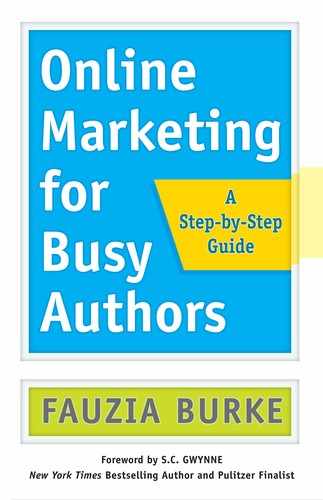Some Parting Advice
From my many years of promoting books online, the one thing I know for sure is that each book has its own sales trajectory. Some start selling right out of the gate and reach great heights, while others take the scenic route and sell steadily for years. And yes, there are some books that don’t sell well at all. With the same marketing efforts, some books resonate with buyers better and more rapidly than others. Why is that?
As much as I would love to say, “I know the answer,” it’s just not possible to know. We have worked on many books that turned into huge bestsellers, and on many more that we wished would have sold better. What I do know for sure is that as publicists, we work with diligence and commitment. We believe in the books we promote. We are creative and flexible. We follow up religiously, and then we hope for a little magic.
When books don’t sell as well as we had hoped, it is disappointing for everyone, not just their authors. The effectiveness of your online marketing efforts should not be judged by book sales alone. Through TV you can reach millions of people with one segment; this type of publicity is not possible online. Online exposure is diffused. You may get millions of hits, but they will be staggered. People will more likely come from different sites and see the information at different times, on different days, in different months or even years. When you think of online exposure, think longevity and message control.
Web features and links are available to readers now, and to new readers months and years from now. Like a snowball rolling down a hill, these features are able to grow thanks in large part to social media sites like Facebook and Twitter, which thrive on the constant sharing of information.
It is also amazing how well online placements translate into long-term visibility on Google. After checking on the long-term visibility of a successful book campaign we ran, I found forty links from a search of the author and book title, six months after the book was published. Of those links, twenty-four were from promotional activities. To my surprise and delight, 67 percent of the promotional links were web features. TV made up 4 percent; print, 13 percent; event promotion, 17 percent; and there were no radio links at all. In this case, it was clear that the web features had staying power. Also, most online features are directly linked to the bookseller, so making the step from liking a book to buying that book is just one click away.
The famous line said it all: “You gotta be in it to win it.” If you are not available online when people are searching for information, the chances of them finding your book and buying it are slim. Remember: Every reader who takes the time to seek information on a related topic is an interested, committed, and qualified buyer—a warm lead. Just the kind we like.
Good luck, authors! Thank you for reading my book. Please reach out to me if I can help you succeed. If I’ve done my online branding job, you should be able to find me easily.
